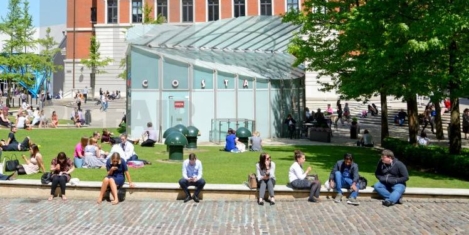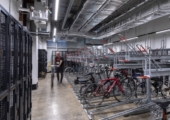February 27, 2019
Digitisation and culture of uncertainty lead employees to seek stability
 Job security is the top reason employees in the UK joined their company, and also the main reason they stay, according to Mercer’s 2019 Global Talent Trends study. With close to one in three employees being concerned that AI and automation will replace their job, senior managers are also worried about the effects of digitisation, with nearly three-quarters (71 percent) of executives in the UK predicting t significant disruption in the next three years, compared to 23 percent in 2018. Mercer’s global findings reveal a similar story finding that as executives focus on making their organisations “future-fit”, significant human capital risks – including the ability to close the skills gap and overcome employee change fatigue – can impede transformation progress. Addressing these concerns is paramount, given that less than one in three executives rate their company’s ability to mitigate the effect on employees as very effective.
Job security is the top reason employees in the UK joined their company, and also the main reason they stay, according to Mercer’s 2019 Global Talent Trends study. With close to one in three employees being concerned that AI and automation will replace their job, senior managers are also worried about the effects of digitisation, with nearly three-quarters (71 percent) of executives in the UK predicting t significant disruption in the next three years, compared to 23 percent in 2018. Mercer’s global findings reveal a similar story finding that as executives focus on making their organisations “future-fit”, significant human capital risks – including the ability to close the skills gap and overcome employee change fatigue – can impede transformation progress. Addressing these concerns is paramount, given that less than one in three executives rate their company’s ability to mitigate the effect on employees as very effective.







 By failing to properly explore what service provision is offered in the event of a serious incident such as flood or fire, businesses are leaving themselves vulnerable to a failing of business continuity, a new survey from Regus suggests. The survey found that 40 percent of businesses rely solely on what their workplace recovery provider tells them, or what is in their contract to protect them from a crisis. The lack of testing of recovery facilities by businesses also leaves them open to further disruption, with businesses at risk of finding that, in reality, the location they have been allocated is too small, with seats only available on a first-come-first-served basis, leaving business-critical staff unable to work.
By failing to properly explore what service provision is offered in the event of a serious incident such as flood or fire, businesses are leaving themselves vulnerable to a failing of business continuity, a new survey from Regus suggests. The survey found that 40 percent of businesses rely solely on what their workplace recovery provider tells them, or what is in their contract to protect them from a crisis. The lack of testing of recovery facilities by businesses also leaves them open to further disruption, with businesses at risk of finding that, in reality, the location they have been allocated is too small, with seats only available on a first-come-first-served basis, leaving business-critical staff unable to work.













 Although the majority (85 percent) of all business decision-makers agree that workplace health is a top priority, employees still aren’t being as open as they should, often playing down their illness or injury (32 percent) or feeling too busy to miss office hours (27 percent), a new survey by Bupa and Babylon Health has claimed. Worry over missing work is a key driver in avoiding appointments as seven in 10 employees (70%) have delayed or put off seeking medical advice when they should, despite the majority of business leaders having no issue with colleagues taking time off to deal with health issues. Men, young workers (18-34), Londoners and those employed in SMEs are all more likely than average to delay or put off seeking help. The data also shows that those in manual roles (vs. clerical) are more likely to shrug off illness or injury. Mark Allan, Commercial Director, Bupa UK, said: “As much as those in decision-making positions really want their employees to put their health first, they’re competing against a strong resistance from those who will strive to soldier on. This is particularly the case with those employees in SME businesses, amongst others.”
Although the majority (85 percent) of all business decision-makers agree that workplace health is a top priority, employees still aren’t being as open as they should, often playing down their illness or injury (32 percent) or feeling too busy to miss office hours (27 percent), a new survey by Bupa and Babylon Health has claimed. Worry over missing work is a key driver in avoiding appointments as seven in 10 employees (70%) have delayed or put off seeking medical advice when they should, despite the majority of business leaders having no issue with colleagues taking time off to deal with health issues. Men, young workers (18-34), Londoners and those employed in SMEs are all more likely than average to delay or put off seeking help. The data also shows that those in manual roles (vs. clerical) are more likely to shrug off illness or injury. Mark Allan, Commercial Director, Bupa UK, said: “As much as those in decision-making positions really want their employees to put their health first, they’re competing against a strong resistance from those who will strive to soldier on. This is particularly the case with those employees in SME businesses, amongst others.”











February 26, 2019
Survey suggests that all age groups are similarly motivated at work
by Sara Bean • Comment, News, Workplace
More →